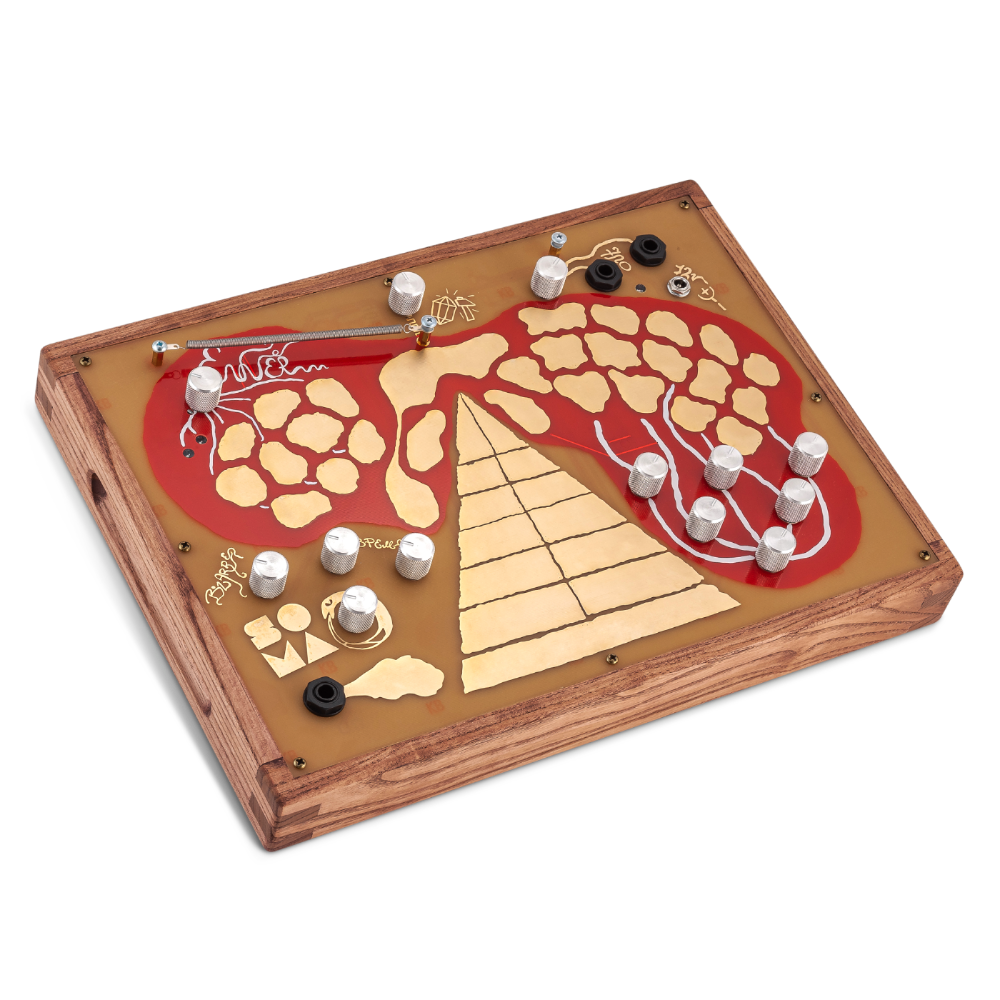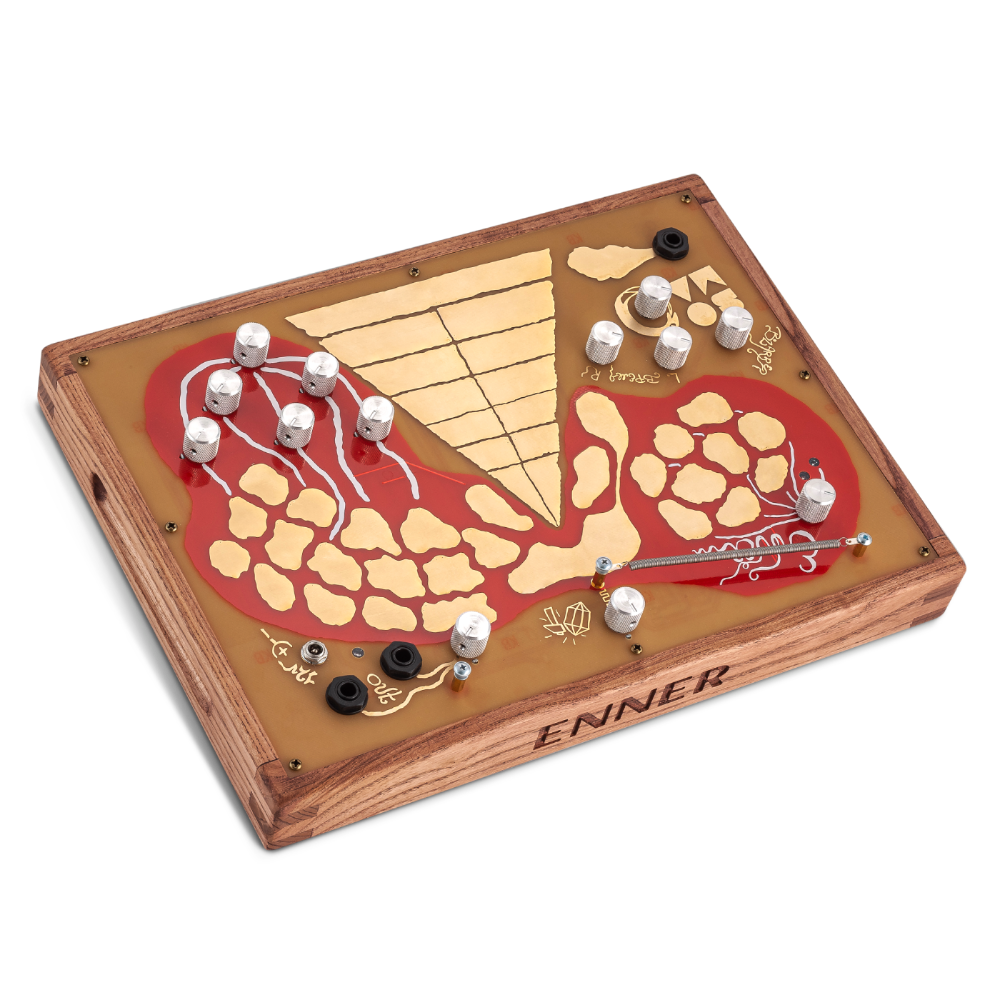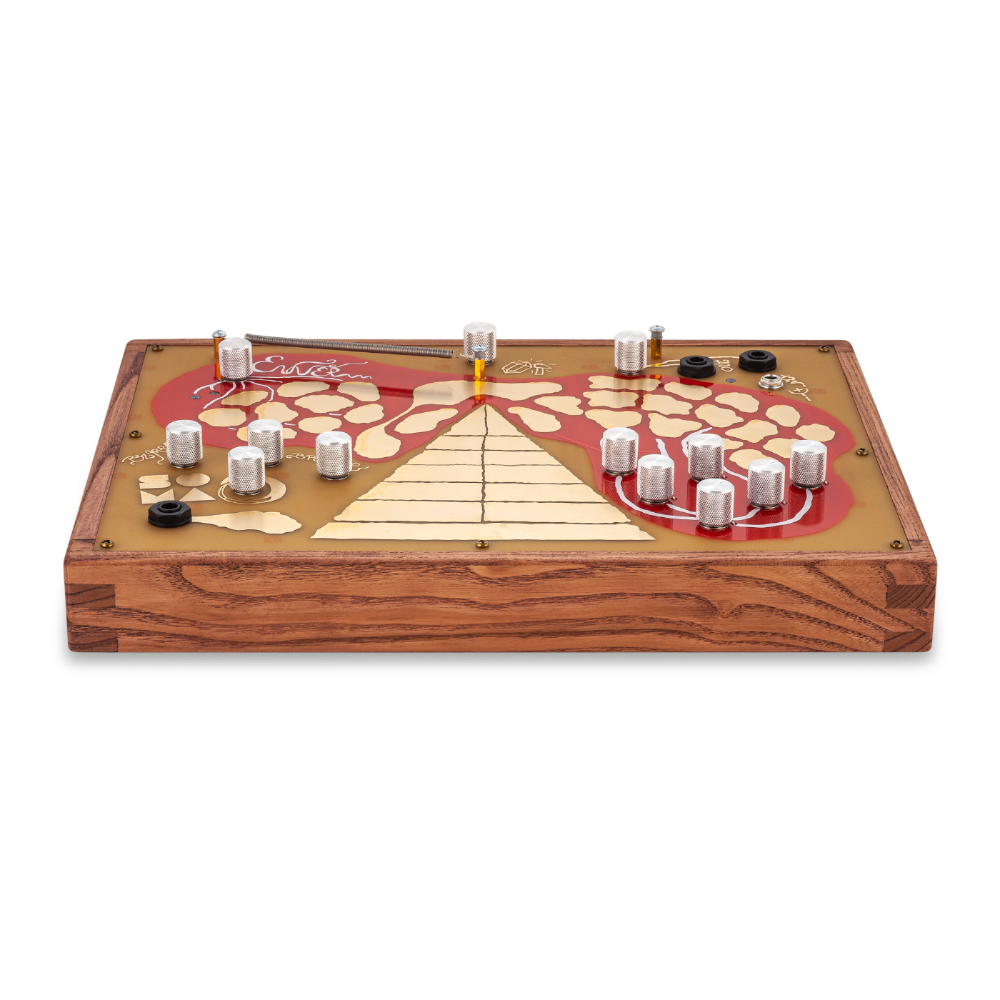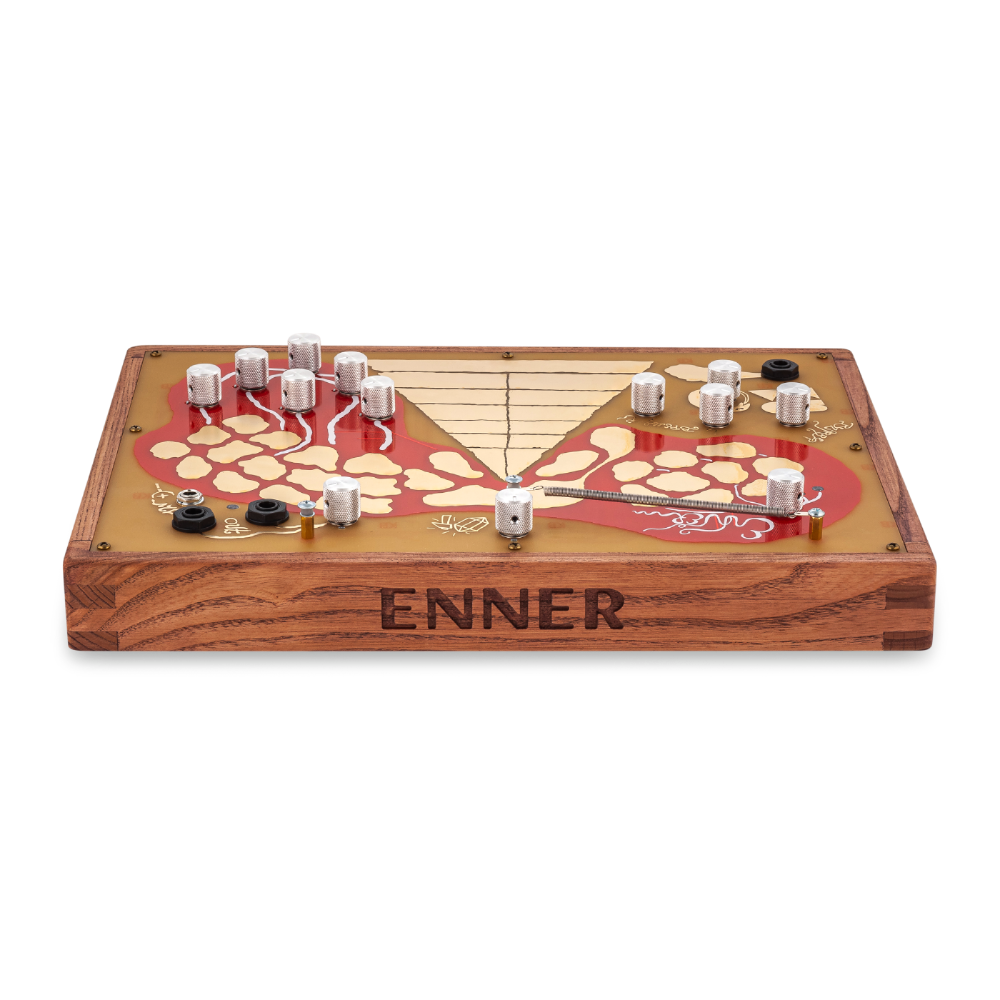ENNER is a very expressive sound tool that can generate bits, pads, FX, noises, clicks, glitches, but also function as a cool vocal mic with built-in analog FX and much more! A musician with a rich imagination and who’s experienced in playing ENNER can perform an entire exciting gig using just this synth.
As an instrument, ENNER is a unique analog synthesizer with the key principle being that all signals that make sound pass through and are managed by your body. Your hands become the central part of the circuitry. Touching different contact pads with different parts of your fingers and palms with different amounts of pressure, letting signals pass through your body defines the mixing, volume, timbre, feedback and other parameters of synthesis. Human skin has much more complex electric properties than we think. Our skin provides not just resistance but also some capacitive properties and even nonlinear dependence of conductivity from current, its direction and time during which the current was applied. All of this affects the sound, making you the key part of the synthesis process.
All pots of ENNER are metallic and also function as inputs or outputs. Touching a pot can change not only the parameters but also patch the audio signals.
ENNER consist of:
- The array of filters with fixed frequency properties (the triangle in the center): the stereo high pass filter (HPF), the stereo bandpass filter (high mid – BPFH), the stereo bandpass filter (low mid – BPFL), the stereo lowpass filter (LPF). Stereo means that the filters have separate inputs for left and right channels as well as separate outputs. Sliding on the filters’ pads with your fingers you can create a rich stereo image where each channel may have not only individual volume properties but also timbral ones. The outputs of the filters are mixed together and connected to the main output. Also in the triangle, you have a stereo direct input (DIR) that lets you bypass the filters.
- The modulated stereo delay. The input of the delay is the two pads on the top of the triangle (DLY blue). The output of the delay is mixed with filter output and connected to the main output. Also, you have delay output connected to the pads placed on the left and right sides from the top of the triangle (DLY orange) that lets you create feedback and other interesting effects. The delay has two separate lines (left and right) with individual TIME controls (????? pots), common FEEDBACK and the common pot that defines the amount of self-modulation (BIZZARE). The ????? pots are also touch inputs for delay time modulation.
- On the right side of ENNER, there is a five-voice synthesizer with individual adjustment of frequency for each voice (TUNE knobs) with the possibility to change the pitch of all voices simultaneously (PITCH knob). TUNE knobs are also the outputs of the voices, so by touching them you can patch the voices to the filter’s inputs. The synthesizer has separate output pads for each voice (pads OUT 1-5), individual modulation inputs (MOD 1-5) and ring modulation outputs (the RING 12, 23, 34 numbers indicate which voices are sources for the ring modulation). Connecting MOD and OUT pads of one voice with your fingers will pitch it up. The fifth voice has an additional modulation pad MOD 5- which can shift the pitch of the fifth voice down (connect it to +12 pad or any pad that has some positive signal including the output of the fifth voice).
- On the left side of ENNER, there is the second synth that has one master generator, the output of which is divided six times by two with individual outputs for each stage of division (PULSE 1-6). This synth is aimed at creating rhythmical clicks, basses and octave tones. The frequency of the master generator is defined by the TEMPO knob. The output pads &1,2,3 are logical multiplications of different PULSE outputs giving additional and more complex rhythm combinations.
- ENNER is also an electro-acoustic noise instrument. It has a piezo pickup attached to the front panel that captures sound from the casing itself. There is metallic spring and you can attach rubber bands to the panel to create various acoustic sounds. The piezo mic can capture clicks and scratches you make with your fingers, and it also allows you to create filtered feedback. Not only that, it can even capture your voice singing over the panel! To get sound from the piezo you have to connect the PIEZO OUT pad with some filters or delay inputs. Applying filters and delay on the piezo out while the panel works as a mic, catching the audio signal from the speakers connected to the ENNER output lets you create very cool acoustic feedback-based effects. PIEZO GAIN adjusts the piezo sensitivity.
- The bottom of the triangle (NOISE pad) is the output of static pink noise.
- External in (EXT socket and EXT pad) lets you send an external audio signal to ENNER and process it through the array of filters, delay and other ENNER stuff.
All of these features make ENNER a simple yet powerful kit of sound sources and FX that give you a rich and diverse sound palette with many possible playing techniques that you can change very fast as there is no other control over the sound other than your touches.
ENNER was inspired by and developed together with Danish sound-artist SiSTOR (Dalin Waldo). She created the design of the front panel (pads layout and handwritten inscriptions) and she came up with the name ENNER.

 switch to the E.U site >
switch to the E.U site >


